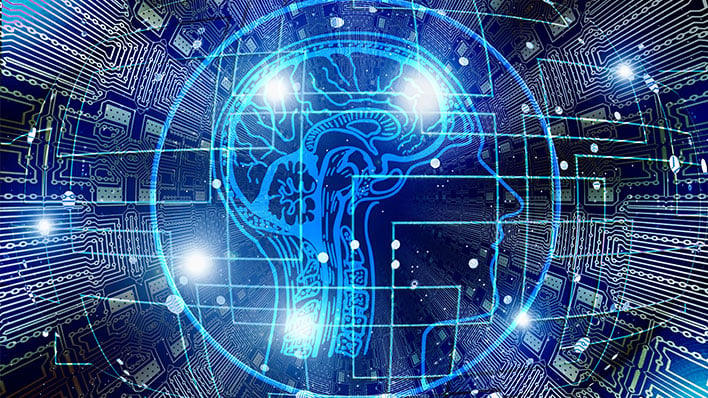Google's Bard AI Spaces Out In Public Demo Knocking $120B Off Alphabet's Market Cap

So here's the deal, artificial intelligence is useful for a good many things, but like humans with their squishy brains AI is not infallible. Unfortunately for Google, this was put on full display in a Twitter post promoting the company's Bard chatbot, which served up false information in a short demo. Since then, the stock price for Alphabet, Google's parent company, has taken a beating with $120 billion erased from its market cap in just two days.
While Alphabet's stock is taking a knee-jerk thrashing, what this boils down to is an embarrassing first impression to the public. Google formally introduced Bard to the world in a blog post earlier this week, in which the company's CEO Sundar Pichai call AI "the most profound technology we are working on today."
Google's AI chatbot is powered by its Language Model for Dialog Applications technology, or LaMDA for short (the same one that got a Google engineer fired after claiming the chatbot was sentient). The timely introduction comes as ChatGPT has been flooding headlines, such as Microsoft integrating ChatGPT into its Bing search and Edge browser.
"Bard seeks to combine the breadth of the world’s knowledge with the power, intelligence and creativity of our large language models," Pichai explained. "It draws on information from the web to provide fresh, high-quality responses. Bard can be an outlet for creativity, and a launchpad for curiosity, helping you to explain new discoveries from NASA’s James Webb Space Telescope to a 9-year-old, or learn more about the best strikers in football right now, and then get drills to build your skills."
It's a powerful tool for sure, but it made a blunder that almost went unnoticed. Have a look...
Bard is an experimental conversational AI service, powered by LaMDA. Built using our large language models and drawing on information from the web, it’s a launchpad for curiosity and can help simplify complex topics → https://t.co/fSp531xKy3 pic.twitter.com/JecHXVmt8l
— Google (@Google) February 6, 2023
In the demo, Bard is asked, "What new discoveries from the James Webb Space Telescope (JWST) can I tell my 9-year old about?" Bard offered up a bulleted list of three answers, one of them incorrectly being, "JWST took the very first pictures of a planet outside of our own solar system. These distant worlds are called 'exoplanents'. Exo means 'from outside'."
Bard nailed the bit about exoplanets, but according to NASA, it was the European Southern Observatory's Very Large Telescope (VLT) that actually capture the first pictures in 2004, not the JWST (which is making amazing discoveries of its own). Oops!
After the demo on Monday, Alphabet's share price fell around 8 percent to $99, wiping around $100 billion off its market cap. At the time of this writing, the share price is down to $95.60, which represents a $120 billion drop in Alphabet's market cap compared to last week.
Alphabet's going to be just fine. For one, market cap figures are not the end-all, be-all, especially given how quickly they can fluctuate. And in this case, even after the $120 billion loss, Alphabet is worth in the neighborhood of $1.23 trillion.
A Google spokesperson issued a statement to Reuters about the public blunder.
"This highlights the importance of a rigorous testing process, something that we're kicking off this week with our Trusted Tester program," the spokesperson said. "We'll combine external feedback with our own internal testing to make sure Bard's responses meet a high bar for quality, safety and groundedness in real-world information."
This is not the first time and it won't be the last time that AI garners attention for making a mistake. Just last month, we reported about a bot writer employed by CNET that had written articles riddled with factual errors, one of which necessitated a huge correction.
Chatbots in the past have also been abused by human users to generate offensive speech, and that's an area companies like Google, Microsoft, and others have to tread carefully around—it's easier to walk back a factual goof than it is to forgive hateful comments.

